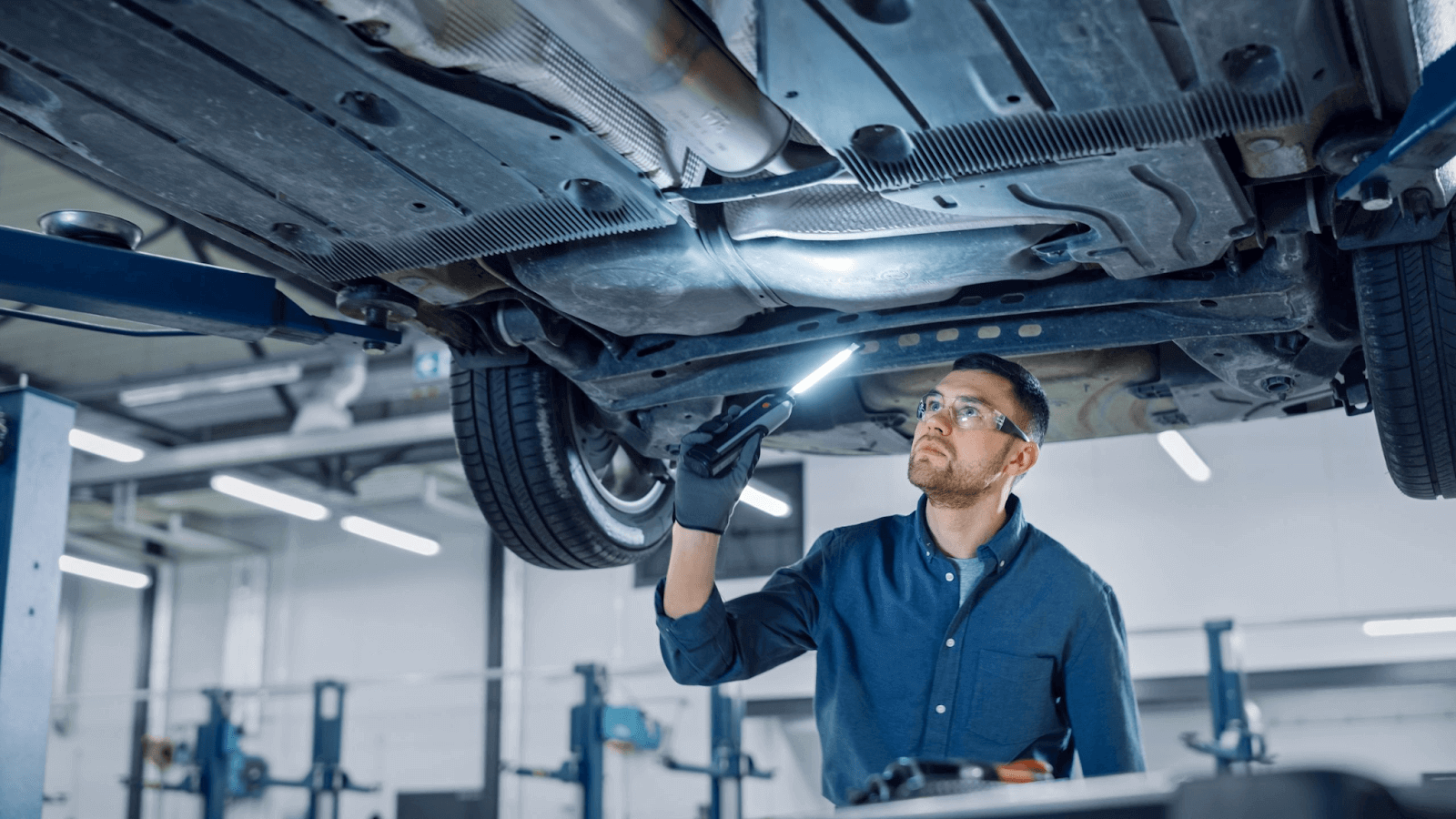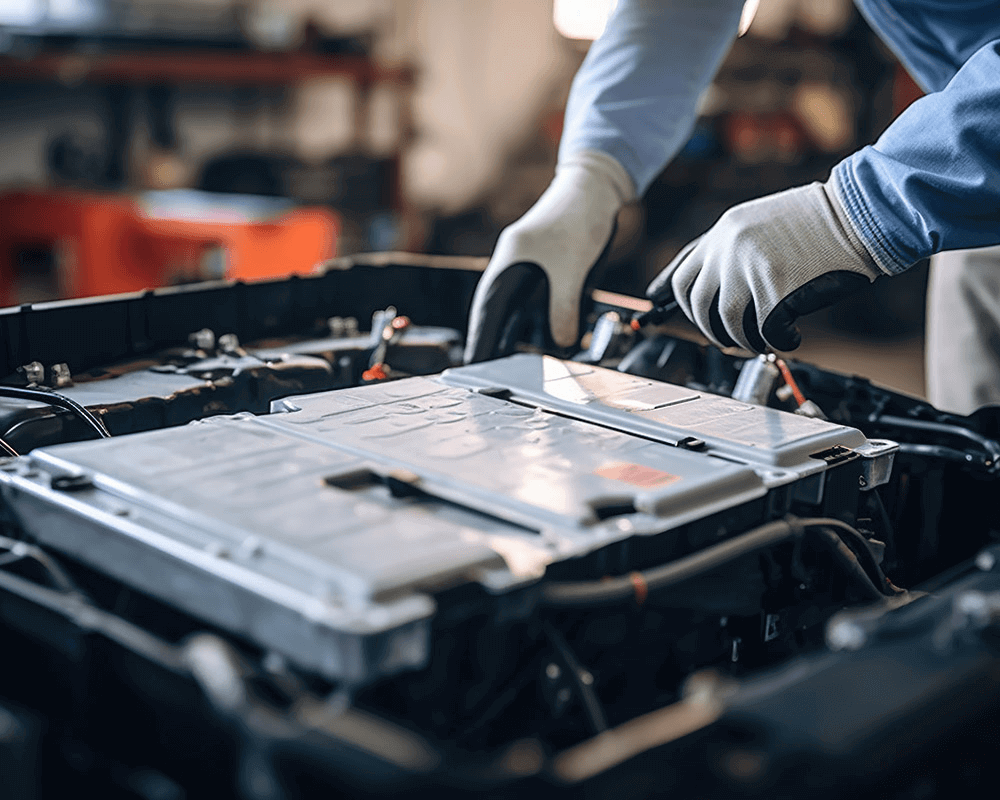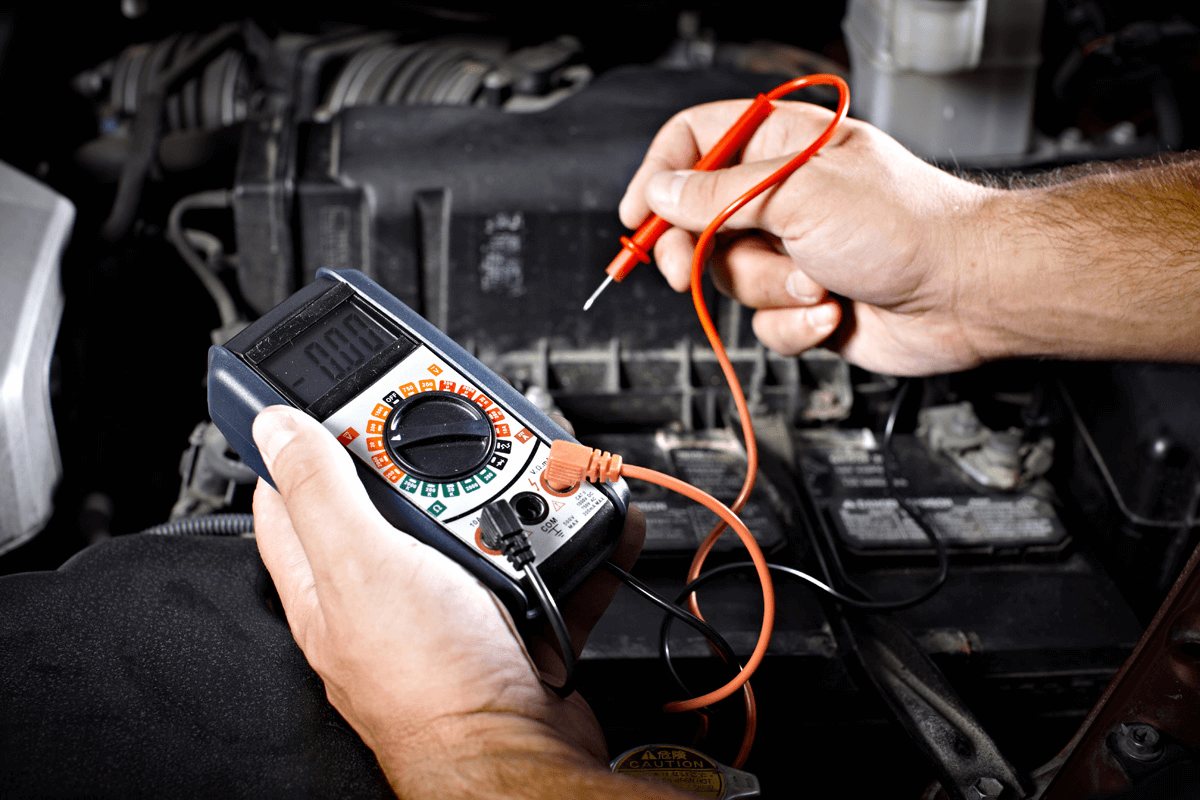Drivers are often surprised to find that maintaining an electric car is much simpler than maintaining a combustion engine vehicle despite the advanced technology in electric cars. With fewer moving parts, there are fewer potential issues. However, regular EV maintenance remains important for the car’s health.
Let’s explore what electric car service costs entail, with Carplus helping you buy the car you want with optimal terms.
How much does an electric car service cost?
The average cost to service an electric car servicing is £174.86, which is cheaper than the current average cost for a standard full service.
Are electric cars cheaper to maintain?

Electric vehicles are often cheaper to maintain than traditional vehicles, thanks to lower servicing costs and the savings from charging with electricity at home.
Data from Book My Garage, for example, shows a substantial gap. They found that servicing EVs costs about £103, which is much less than the average costs for petrol (£151), hybrid (£159), and diesel models (£163) during the same period. However, expenses for parts like tyres and brake pads don’t differ that much between electric and non-electric cars.
The overall maintenance costs vary based on the specific automaker and model of the vehicle. For example, the Nissan Leaf, Kia EV6, Hyundai Kona Electric, and Hyundai Ioniq 5 are among the cheapest to maintain. The Tesla Model 3, Kia Niro EV, and Porsche Taycan Cross Turismo Turbo S have some of the highest electric car running costs.
If you’re considering buying a high-quality electric car and need flexible financing options, Carplus is a fantastic place to start. Our financing options make it easier to afford your ideal electric car by spreading out the payments over time. Check out our selection to find the perfect EV for you!
Find car finance deals with the best rates!
My monthly budget is
What is checked during an electric vehicle service?
Here are the checks included in the electric car service costs:
Battery

Using a diagnostic computer, technicians pinpoint any potential faults in the battery life, and if needed, they can replace individual cells instead of the entire battery. Costs for battery repair vary, but estimates from Book My Garage put the average full battery replacement at around £7,200. The cost for small adjustments on a battery depends on how serious the issue is.
Manufacturers often offer robust warranties on EV batteries, like the 8-year coverage from Tesla, Renault, Nissan, and Jaguar. This should ease concerns about battery degradation and expensive replacements.
Cooling
EVs have a cooling system similar to traditional cars, designed to maintain the battery at optimal temperature regardless of electric motor workload or outside temperatures. This system is usually liquid-cooled and requires periodic maintenance. It includes checking pipework for leaks and topping up fluid levels if necessary.
Cooling system repairs range from £80 to £500 depending on the specific parts that need replacement.
Suspension
Suspension includes components like shocks, struts, springs, and control arms, much like traditional vehicles. However, there are differences in EV suspension due to their unique characteristics. For example, EVs have a lower centre of gravity because of the heavy battery in the floor.
n terms of EV service, suspension requires specialised knowledge and equipment. Your technicians need to be familiar with EV-specific suspension components and systems, as well as understand how regenerative braking affects suspension wear.
The cost of repairing or replacing suspension components typically ranges from £100 to £600.
Wiring

Due to the higher voltage levels in EVs, technicians require specialised safety equipment, such as insulated tools, gloves, and mats, to protect against electric shock. This adds an extra layer of safety considerations during wiring services.
Wiring services must adhere to strict regulatory standards and codes governing high-voltage systems, such as those set by organisations like the Society of Automotive Engineers and BS 7671 Electrical Wiring Regulations.
Brakes
Brakes see less wear and tear on EVs due to regenerative braking, which reduces the need for brake pad and disc replacements. For example, the latest Nissan Leaf models feature an e-pedal that maximises regenerative braking, allowing the car to come to a complete stop without using brake pads.
However, issues like disc warping and rust still need attention.
If brake pad and disc replacements are required, the average cost is around £250.
Tyres
Budget tyres can start at around £45, while premium options can cost up to £220. Mid-range tyres, including labour, typically average around £75.
Also, smaller and more common tyre sizes are more affordable. To get accurate quotes, note down the tread width, tyre thickness (profile), and wheel diameter in inches for your wheels. For example, a Nissan Leaf might require 205mm/55mm 16-inch tyres.
Tyres on EVs endure higher strain because of the extra weight from the battery, which may lead to quicker wear and more frequent replacements. Owners should maintain proper tyre pressure, as it directly impacts the car’s efficiency and range. Under-inflated tyres reduce efficiency and range, while over-inflated tyres wear out faster. You can easily check and adjust tyre pressure at home or a petrol station.
Air Conditioning
During servicing, the air conditioning system is checked to see if it needs a recharge or if the air filter needs replacing. Common repair costs related to EV air conditioning include:
- AC regas: £50 - £200
- Leak repair: £50 - £200
- Condenser repair: £180 - £520
- Compressor repair: £400 - £1,000
As temperatures climb, the air conditioning in EVs has a notable impact on range. For instance, at 26°C, AC usage accounts for roughly 2.8% of total energy consumption. This figure rises to 5% at 32°C and surges to 31% at 37°C, a temperature increasingly common in summer.
To preserve range, EV owners should park in shaded areas to reduce AC usage, maintain moderate driving speeds, and avoid setting the AC to maximum cooling.
Wipers

Modern EVs have advanced onboard computer systems that can monitor and optimise various vehicle functions, including wiper usage. For example, some EVs have rain sensors adjusting wiper speed based on the intensity of rainfall. These features improve efficiency and reduce unnecessary wear on wipers.
The cost of servicing wipers varies depending on factors such as the complexity of the wiper system and the type of wiper blades used. The price shouldn’t be much different from those for ICE vehicles of the same size, class, and year.
MOT costs for electric cars
The cost of an MOT tests (annual safety and emissions inspection) for electric cars in the UK is the same as that for petrol or diesel cars, as determined by the DVLA (Driving & Vehicle Licensing Agency).
Learn more in the article - Do Electric Cars Need an MOT?
Conclusion
In many ways, the maintenance needs of an electric vehicle are similar to those of an internal combustion engine vehicle. You still have your checks on suspension, brakes, and wipers. However, EVs do away with components like the exhaust system and fuel pump and replace them with essential parts like the battery. This makes for slightly less maintenance than usual.
Plus, electric vehicle servicing tends to be a bit cheaper (~10-30% less), so it’s a win-win for your wallet and the environment.
Table of Contents








